A new school complex on the edge of the rainforest in northern Brazil called Children Village has been announced as the winner of the RIBA International Prize 2018 for the world’s best new building.
The building was designed by Brazilian architects, Aleph Zero and Rosenbaum and it provides boarding accommodation for 540 children aged 13 to 18 attending the Canuanã School. Pupils come from remote areas of the country, some travelling many hours by boat.
Funded by the Bradesco Foundation, Children Village is one of forty schools run by the foundation providing education for children in rural communities across Brazil.
The architects, Gustavo Utrabo and Petro Duschenes from Aleph Zero, designed Children Village in collaboration with Marcelo Rosenbaum and Adriana Benguela from architecture and design studio, Rosenbaum.
Central to their vision for the project was the idea of architecture as a tool for social transformation. The architects worked closely with the children to identity their needs and desires for their school. They wanted to create an environment that could be a home away from home, where children could develop a strong sense of both individuality and belonging.
Replacing dormitories for 40 students, the new design provides rooms for six children in a more intimate environment. As well as private spaces, public spaces were designed to give ample space for pupils to study, play and relax.
Covering an area of almost 25,000 m2, Children Village is organised into two identical complexes: one for girls and one for boys. Residences are centered around three large, open and well-shaded courtyards at ground level, where the dormitory accommodation is located. On the first floor, there are a number of flexible communal spaces, ranging from reading spaces and television rooms, to balconies and hammocks, where the children can relax and play.
The tropical climate, with summertime temperature in the mid-40 degrees, was one of the major challenges cleverly addressed by the architects. The large canopy roof, the structure of which is made up of cross-laminated timber beams and columns, provides shading. The overhanging canopy design has created an intermediary space, between inside and out, giving the effect of a large veranda overlooking the surrounding landscape and creating a comfortable environment with no need for air conditioning.
Combining a contemporary aesthetic with traditional techniques, Children Village has been described by the judges as ‘reinventing Brazilian vernacular’. The building is constructed with local resources and based on local techniques. Earth blocks handmade on site were used to construct the walls and latticework, chosen for their thermal, technical and aesthetic properties. As well as being cost effective and environmentally sustainable, this approach creates a building with strong connections to its surroundings and with the community that it serves.
The RIBA International Prize 2018 jury was comprised of architects Elizabeth Diller (DS+R), Kazuyo Sejima (SANAA), Joshua Bolchover (Rural Urban Framework), Gloria Cabral (Gabinete de Arquitectura) and Peter Clegg (Feilden Clegg Bradley Studio).
See more photos below:
In 2016, the inaugural RIBA International Prize was awarded to Grafton Architects for their outstanding university building, UTEC (Universidad de Ingeniería y Tecnología) in Lima, Peru.


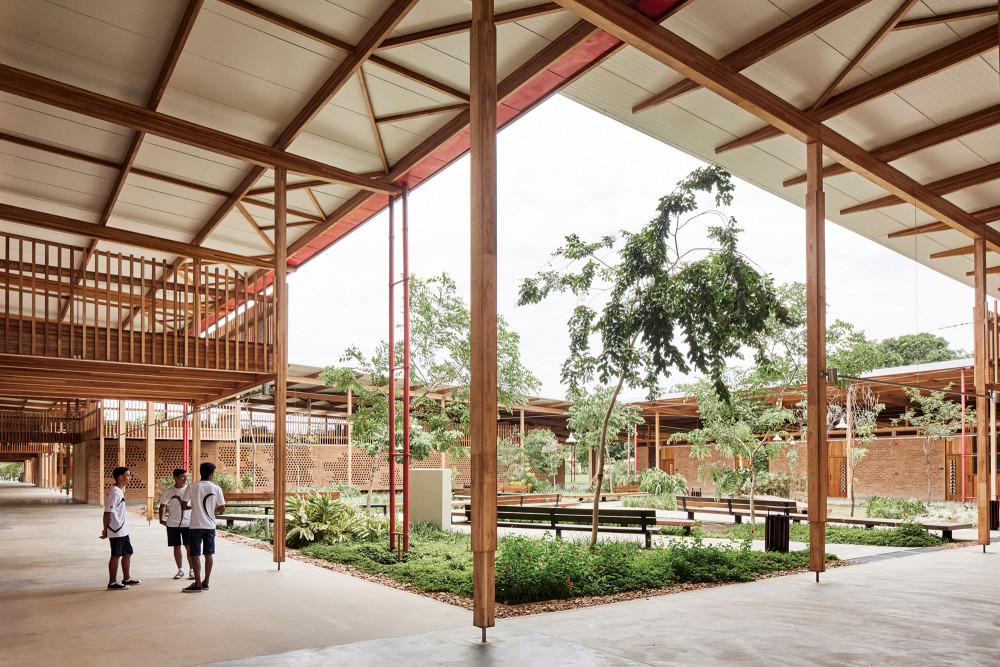
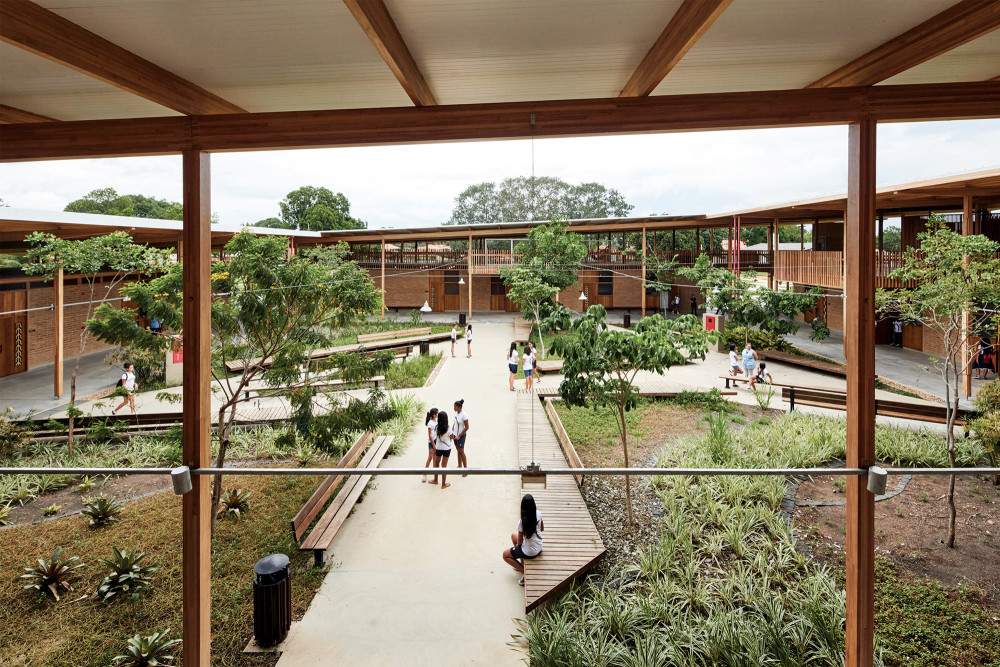
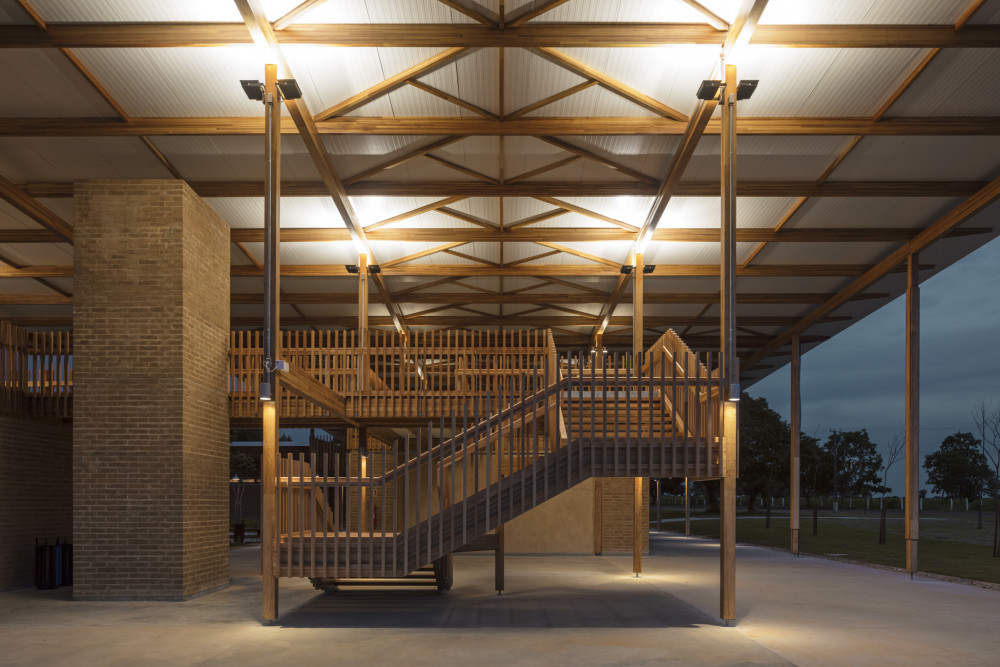
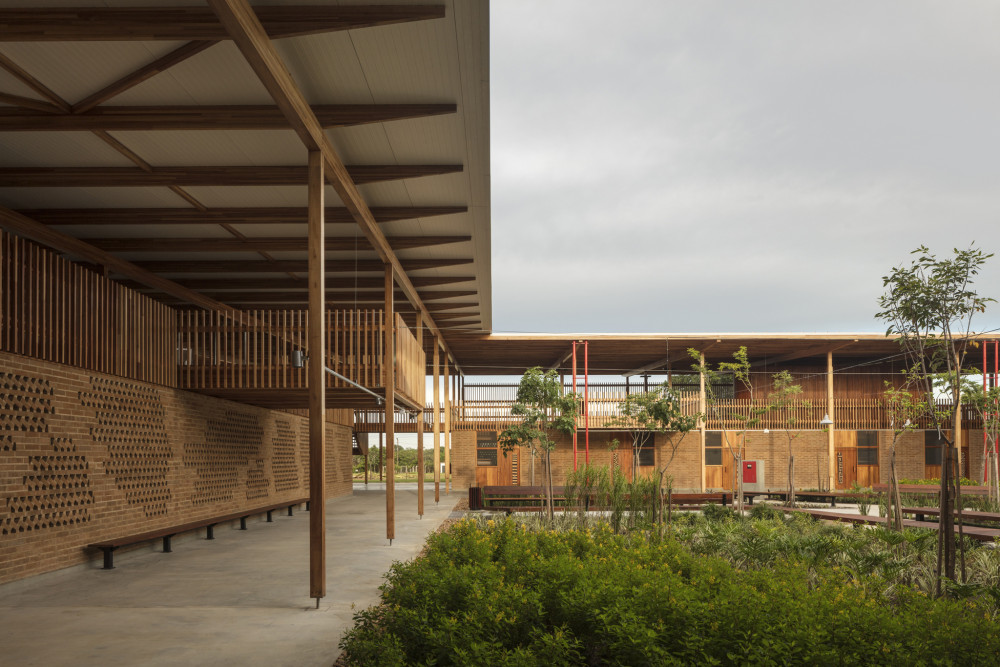
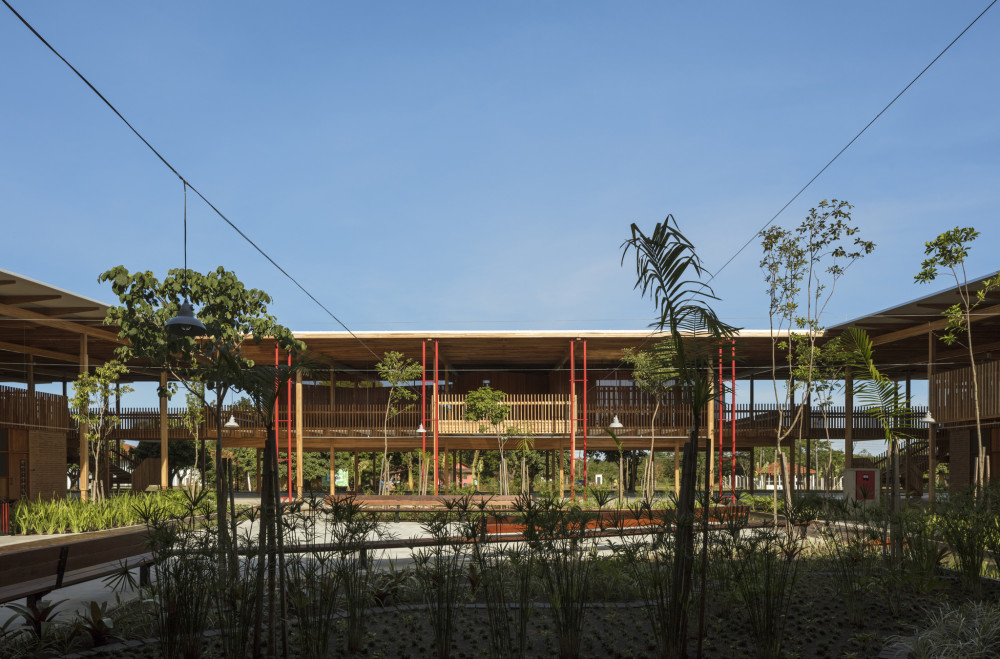
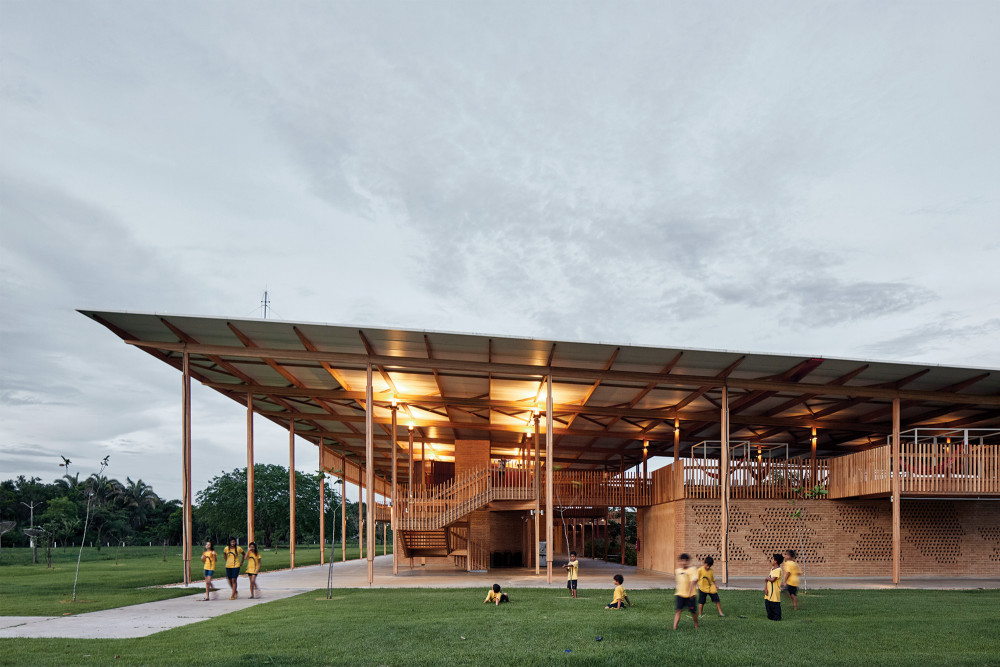
Comments